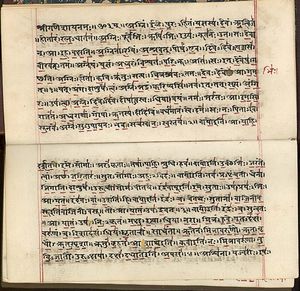
India’s Rig Veda manuscripts now find a place in UNESCO’s Memory of the World Register. India has welcomed the inclusion of the 3000-year old manuscripts in the world body’s cultural list of posterity.
A total of 38 heritage documents from different parts of the world have made it to the iconic register this year. With this the total strength of the register has grown to 158 since it was introduced in 1998.
The nomination of India’s Rig Veda manuscripts dating from 1800 to 1500 BC was filed by by Sudha Gopalakrishnan of National Mission for Manuscripts and M G Dhadphale, honourary secretary, Bhandarkar Oriental Research Institute, Pune. Though the Sharada script was also nominated, yet couldn’t make to the international heritage.
Three other Indian documents including the I.A.S Tamil Medic Manuscript Collection (1997), Archives of the Dutch East India Company (2003) and the Saiva Manuscripts in Pondicherry (2005) adorn the world-renowned register.
The Rig Vedas are the first literary documents in the history of humankind that rise above their identity as merely scriptures. They are unique examples of the intellectual and cultural heritage not only of India, but also of the world.
The 30 of the manuscripts selected from a total of 28,000 manuscripts are housed in the Bhandarkar Oriental Research Institute in Pune. They are considered to be the fountain sources of the Aryan culture in all its manifestation that spread beyond the Indian sub-continent to large parts of South and South-East Asia, as well as parts of Central Asia.
These 30 manuscripts are written in Sharada and Devanagari, while one is on birch bark, 29 are written on paper.
Other inscriptions that made to the register this year include, The Story of the Kelly Gang (1906), the world’s first feature-length film that allowed Australia to discover the original trace of a beloved myth. The other nomination from Australia is The Convict Records of Australia – a written account of exile over 80 years of some 165,000 convicts from the UK, who established the Independent Australian Commonwealth.
Various other scripts from Africa, Austria, Latin America (Bolivia, Colombia, Mexico and Peru) have managed to get in the memory of the world register.
Rig Veda is one of the knowledge pillars on which the superstructure of Asian culture is built. And their making it to the memory register is in itself illustrates the significance of the manuscripts.
Via: Timesofindia




